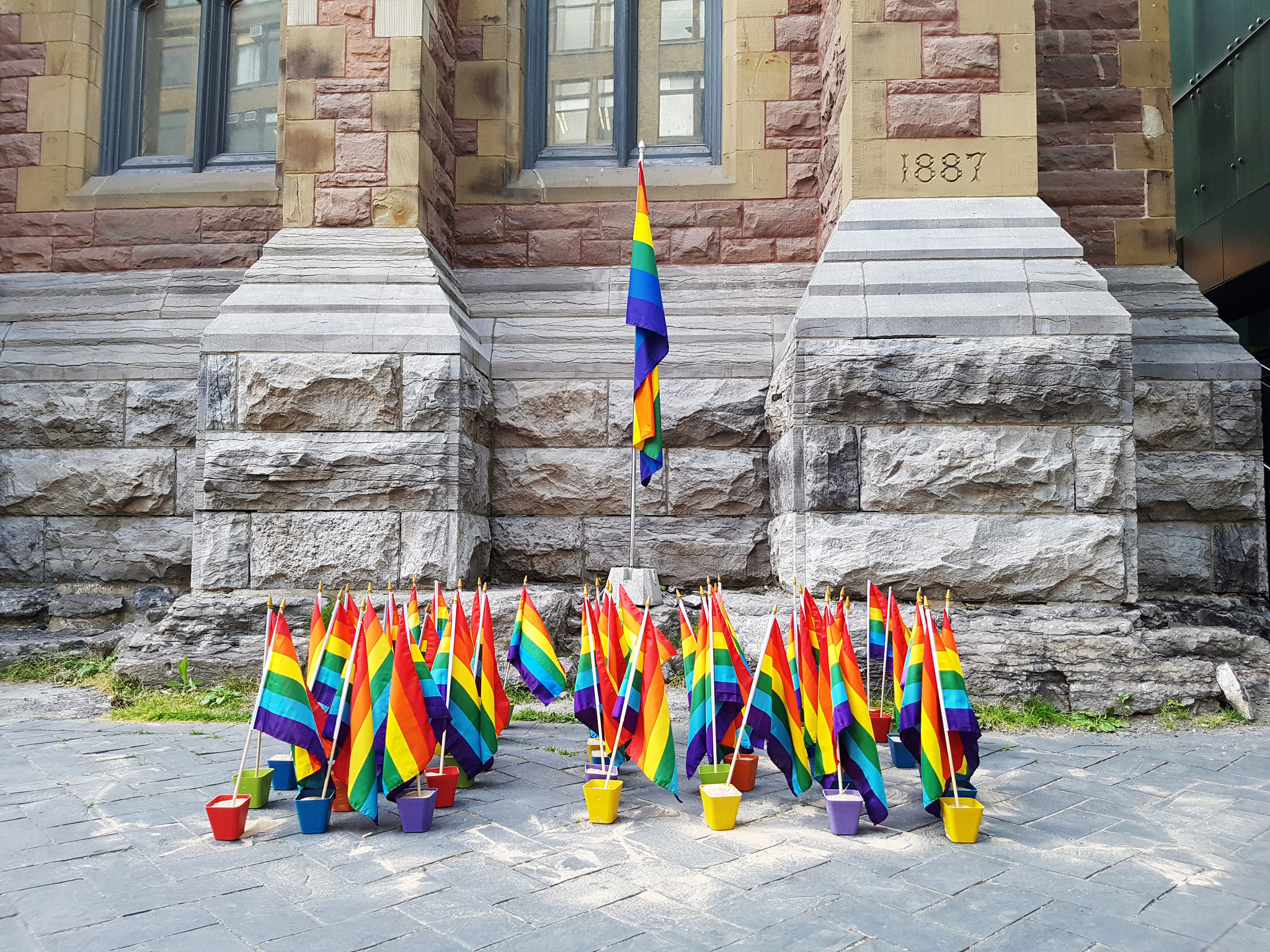Photo Credit: Exile on Ontario St
Every member of the LGBTQ community has at least one “bad ally” story.
I’ve heard these stories from my former classmates, my close friends, and my colleagues on the board of The Frederick Center, a nonprofit that provides resources, education, and support to the LGBTQ community in central Maryland.
The stories usually involve well-meaning straight, cis-gender people who are so quick to speak of their needs or experiences that they fail to hear the voices of the people with whom they claim to stand in solidarity. These moments are integrated into our larger identity as queer people. But they are not chinks in our armor. They are stones we’ll carry with us, rubbed smooth by time and memory.
In the wake of the attack on Pulse, I have witnessed moments of great tenderness and astounding ignorance.
The Friday after the attack, I reported to work, relieving a co-worker of her shift. Before she left, the killings in Orlando came up in conversation. Talk turned to our own city, a fairly liberal urban outpost in a rather conservative area. My co-worker pronounced that our town was very accepting of its queer denizens and that she’d never experienced prejudice of any kind.
I was flabbergasted. My co-worker is a cis, straight woman. I could have recommended some further reading, and maybe said something reasonable like You cannot speak to the discrimination the LGBTQ community has faced in our city. You can sympathize and support us, but you cannot be us.
What came out, instead, was, “Well, you’re not a gay lady.”
“Well, I’m a very outspoken ally,” she said, huffily.
In this situation, it isn’t unusual to feel defensive. I know I’ve felt this way when I’ve been forced to account for biases I’ve subconsciously held. We want to believe we are good, enlightened people incapable of hurting others inadvertently. When we feel defensive after a member of a marginalized group has offered a different interpretation or opinion, it may be a sign that our moral compasses are in need of an uncomfortable recalibration.
You can sympathize and support us, but you cannot be us.
Theorist and activist Nine Yamamoto-Masson calls this response “ally fragility.” “If intersectional politics is an attempt to recognize our own personal location in networks and layers of privilege,” she posits, “it often seems as if ally fragility is the evasion of this responsibility, to recognize that personal accumulations of privilege complicate relations of solidarity. ”
I spent the week after Pulse mired in fear. A month after the shootings, I have realized that it is a fear that will never completely disappear.
After my co-worker left the building, I texted two of my close pals, who are also queer, about what had happened. I needed them to reassure me that I wasn’t overreacting or being oversensitive. I wanted to move on to the moment when I would laugh and roll my eyes, instead of feeling unsafe and unseen.
J., one of my (straight) best friends from college, texted me: “Today is really tough. I think you feel others’ pain as deeply as you feel your own and that is so draining and hard on days like today. I just wanted to say I love you.”
I clung to my friend’s words. They were my hope when I had no hope left.
Allyship is possible once you understand that “ally” is best expressed as a verb, not a noun. To ally oneself with a cause is to take tangible steps in creating a supportive atmosphere—from the macro level (i.e. advocating for policy change) to direct-action work (volunteering at an LGBTQ youth group, writing letters of support to queer prisoners, etc.) to sending a text that simply offers to listen to us. Juliet Jacques, author of Trans: A Memoir, is right to declare that allyship is nothing without the work to back it up. “There are no allies, only actions,” writes Jacques. “There is no magical status—only a readiness for action.”
Your actions—without expecting gratitude or even reciprocation—are what matter most in times like these.
The shooting at Pulse has disappeared from the 24-hour news cycle, but the opportunity to ally yourself with the queer community—in all its messy, beautiful intersections—remain. We are blessedly alive, and we get to do that work.
E.A Perper is a contributing editor for Longreads, a writer, and a bookseller. The opinions expressed here are the author’s own, and do not necessarily reflect the view of The Frederick Center.







0 Comments